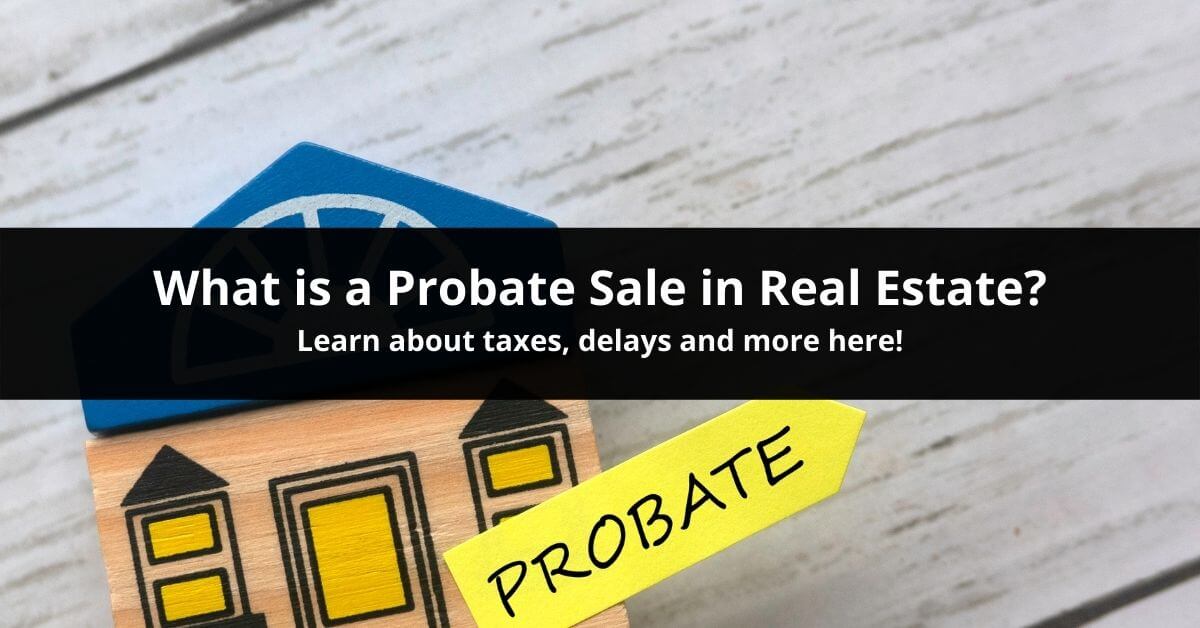A probate sale in real estate occurs when a homeowner has died without a will and the property is being sold in order to liquidate the asset. A probate sale can also involve a homeowner dying that owes significant debts. Any properties that the person owned are sold to pay off their creditors if the estate doesn’t have enough in cash assets.
Now that you know what a probate sale in real estate is, lets answer some of the most common questions about probate sales.
How does a probate sale work?
A probate sale works like this (it can vary slightly from state to state but there are specific procedures that are followed):
- When someone passes away without a will, the court appoints an executor to carry out the property sale.
- The executor then usually hires a probate real estate agent to sell the property.
- The executer hires an appraiser to help determine the list price.
- The probate real estate agent then markets the property.
- Buyers now can make an offer which must be accompanied by at least a 10% down payment. The seller can accept, counter, or reject the offer.
- The offer is sent to the probate court who makes the final decision on whether to accept the offer during a confirmation hearing.
- On the court hearing date, all the interested buyers will be required to attend the court hearing to confirm the sale.
- Once a buyer is confirmed, a contract is signed with no contingencies.
- The buyer can close on the house.
Are probate homes cheaper to buy?
Yes, the biggest advantage of buying from a probate house sale is that probate homes are typically cheaper than other houses in the area. But this could depend on how many people want the property and how many are willing to go into a bidding war.
Is there a risk with buying a probate home or is it safe?
Yes, there are risks with buying a probate home and each state has very specific rules about probate sales. If you do not follow the court rules, the buyer can be forced to forfeit their down payment and the sale will not go through. Also, probate sale homes are sold “as-is” so unlike a traditional home sale, you cannot negotiate fixes and repairs.
Does a probate house sale take longer?
Yes, a probate house sale takes longer than a regular sale due to legal waiting periods, disputes among the deceased’s family, and unsettled debts and liens. You can expect a probate sale to take anywhere from six months to a year or sometimes even longer.
Am I responsible for debts or taxes?
No, you are not responsible for the debts and taxes when you buy a house in a probate sale. The estate executor is responsible for paying any debts and taxes.

